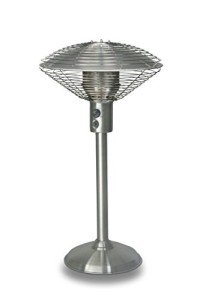This Week's Most Popular Stories Concerning Gas Heating Solutions
Gas Heating Solutions: An In-Depth Overview
Gas heating solutions play an essential function in providing comfort in homes and businesses, especially in cooler climates. With a range of options readily available, it can be challenging to determine which system finest meets individual needs. This short article looks into the most popular gas heating solutions, their benefits, disadvantages, and factors to consider for setup. Additionally, we will deal with typical concerns relating to gas heating to equip readers with the understanding they need to make educated decisions.
Comprehending Gas Heating Solutions
Gas heating systems use gas or propane to produce heat for domestic and commercial residential or commercial properties. These systems are favored for their performance, reliability, and ability to produce heat rapidly. Listed below, we explore a number of types of gas heating solutions widely utilized today.
Kinds Of Gas Heating Solutions
Gas Furnaces
- Description: Gas heaters burn gas or propane to heat air, which is then dispersed throughout the structure by means of ductwork.
- Efficiency: Rated by Annual Fuel Utilization Efficiency (AFUE), gas heating systems generally have performances ranging from 80% to 98%.
- Setup: Installed in a basement or closet, needing ductwork for heat circulation.
Gas Boilers
- Description: Gas boilers heat water to supply warm water and hydronic heating (heat by means of water radiators).
- Performance: AFUE rankings can likewise be very high, rising to 95%.
- Installation: May need considerable pipes, and setup depends on the kind of radiators or underfloor heating used.
Gas Space Heaters
- Description: Standalone appliances created to warm a single space or specific areas without the requirement for ductwork.
- Efficiency: Varies depending on the model however generally reliable for targeted heating.
- Installation: Relatively simple to set up; can be vented or unvented depending upon the design.
Gas Fireplaces
- Description: Aesthetic heating solutions that provide warmth and visual appeal.
- Performance: Varies; gas fireplace inserts can be rather efficient.
- Setup: Requires an ideal chimney or venting solution.
Pros and Cons of Gas Heating Solutions
Pros
- Cost-efficient: Gas is typically more economical than electrical energy for heating, which can reduce monthly utility bills.
- Quick Heating: Gas heater normally heat up areas more rapidly than electric systems.
- Dependability: Natural gas pipelines are typically dependable, supplying a consistent energy supply.
- Environmental Impact: Natural gas burns cleaner than other fossil fuels, producing fewer greenhouse gases.
Cons
- Installation Costs: Initial installation can be expensive, consisting of costs for essential ductwork or pipes.
- Safety Concerns: Gas systems can posture a threat of gas leaks and should be frequently kept.
- Carbon Footprint: Although cleaner than other fossil fuels, gas heating solutions still contribute to carbon emissions.
- Dependency on Infrastructure: Users rely on gas facilities, which can be impacted by supply issues or emergencies.
Key Considerations for Choosing Gas Heating Solutions
When selecting a gas heating system, several aspects must be taken into account:
- Energy Efficiency: Look for models with high AFUE scores to guarantee efficient energy use.
- Capability Needs: Consider the square footage and heat requirements of the space to choose the suitable size.
- Setup Space: Assess the design of the home or organization to figure out where a gas system can be set up.
- Budget: Weigh the long-lasting cost of operation against the initial installation expenses.
- Ventilation: Ensure appropriate ventilation for combustion byproducts for indoor gas heating systems.
Installation and Maintenance
Professional setup is advised for gas heater due to the intricacies involved. Premium Heaters is likewise vital for safety and efficiency. Regular evaluations by a certified technician can include looking for gas leaks, guaranteeing the venting system is clear, and cleaning components to enhance performance.
Often Asked Questions (FAQs)
**Q1: Is gas heating safe?A1: Gas heating is generally safe when appropriately set up and kept. It is important to carry out routine maintenance and look for gas leakages. Q2: How can I find a certified service technician for gas heating installation?A2: Look for licensed HVAC specialists with experience in gas heating systems. Online
reviews and recommendations from loved ones can offer excellent starting points. Q3: What types of gas can be used for heating?A3: Natural gas and propane are the two primary types of gas utilized for heating
. Natural gas is supplied via pipelines, while propane is delivered in tanks. Q4: How long does a gas heating system last?A4: With proper upkeep, gas heaters and boilers can last 15-30 years, depending upon usage and care. Q5: Can I change from electric heating to gas heating?A5: Yes, switching is possible, however it might need adjustments to existing ductwork and the setup of a gas
line. Seek advice from an expert to examine the feasibility. Gas heating solutions are a popular option for efficient and reliable heating in various settings. With options ranging from heating systems to space heaters, there is a suitable option for practically every requirement. Before making a decision, it is necessary to examine factors such as efficiency, setup needs, and expenses. By comprehending various gas heater, individuals can choose the best option for their heating needs, guaranteeing comfort and safety throughout the colder months.  **
**